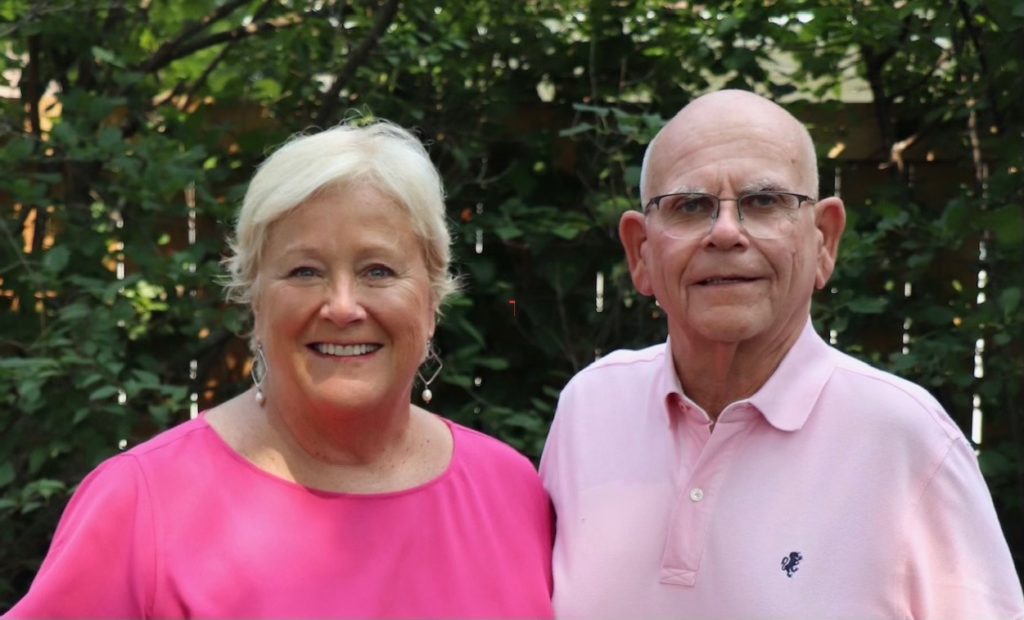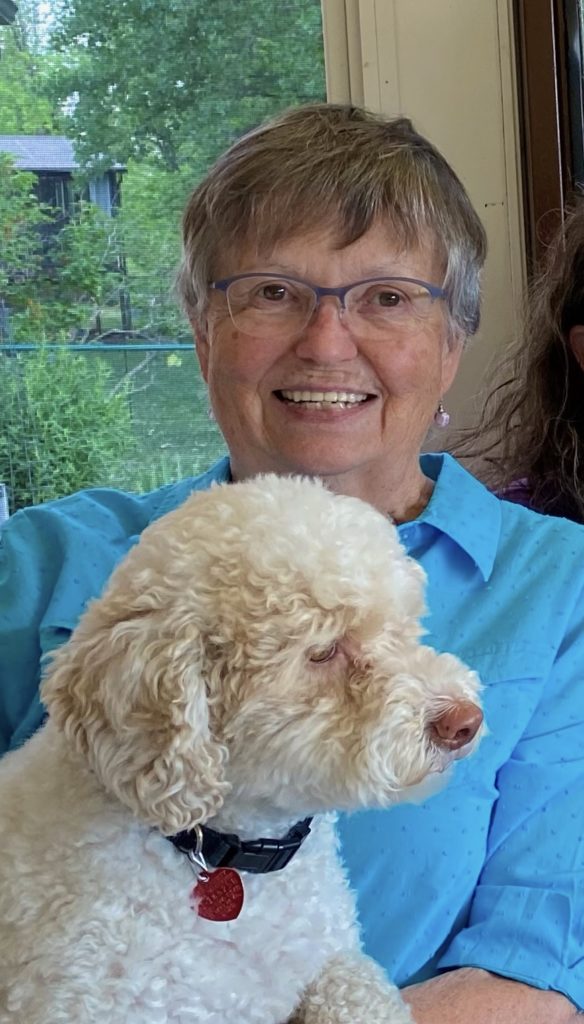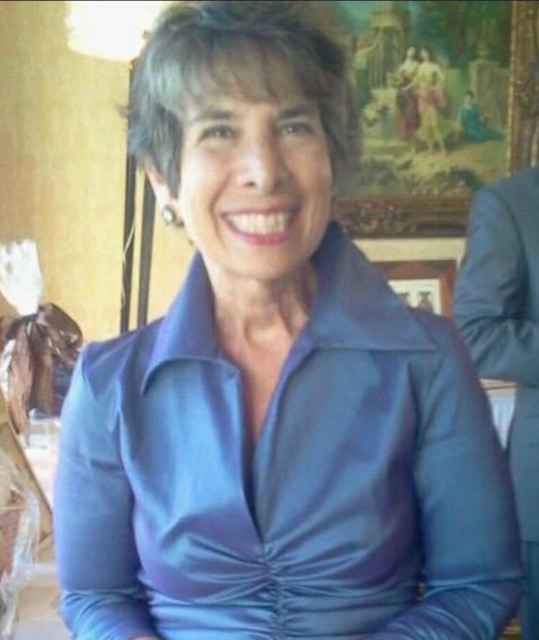Judy Owens knows all about the uproar surrounding the Food and Drug Administration’s approval of the first new Alzheimer’s drug to be introduced in nearly two decades — and she’s fine with it.
Her husband, Tony, was diagnosed with the devastating disease in 2010 at age 60.
He had participated in two previous clinical trials that were terminated, so when the opportunity came along to participate in another study, the Glenview couple was on board.

“With breast cancer, you have lots of treatment options, but with Alzheimer’s, there’s just nothing out there,” she said. “I felt like we had absolutely nothing to lose.”
The trial, at Amita Health in Elk Grove Village, was for Aduhelm, a much-anticipated medication that targets the amyloid clumps in the brain, believed by some to be the cause of cognitive impairment.
Dr. Concetta Forchetti is medical director of the Memory Disorder Clinic and Clinical Research and one of about 600 specialists nationwide conducting clinical trials. She hailed the drug as a “breakthrough” and “a victory.”
But the launch in June hardly went smoothly. A chorus of clinicians and other experts criticized the FDA for green-lighting Aduhelm, saying there was insufficient evidence that the therapy actually worked — and could possibly do harm. Three scientists on the FDA’s advisory board resigned in protest.
.@harvardmed Professor @akesselheim, resigned in protest after the FDA’s controversial approval of the Alzheimer’s drug, Aduhelm, last month. He joined @jimbraude recently to discuss why…and the dangers he believes the drug poses. https://t.co/rAVupfhXG9 pic.twitter.com/J7e6d3hiis
— Greater Boston (@GreaterBoston) July 14, 2021
This month the acting head of the FDA, Dr. Janet Woodcock, called for an independent investigation into the approval process and if any improper contact occurred between the agency and Biogen, the Massachusetts-based drug maker.
Dr. Marsel Mesulam, director of Northwestern’s Center for Cognitive Neurology and Alzheimer’s Disease, was not involved in the trials but is fielding plenty of questions from patients hopeful that this is their long-awaited miracle drug.
He summed up his ambivalence on his website, calling the evidence “unconvincing” but also adding, “Now that the drug is approved, I hope the additional data coming out of patients…will surprise us on the upside and prove that the drug has a meaningful impact.”
About the only point on which everyone agrees is the dire need for treatment. With more than 6 million people affected — 230,000 in Illinois alone — someone is diagnosed with Alzheimer’s every 67 seconds. Two-thirds of all patients are women, as are their caregivers, according to the Alzheimer’s Association.
Owens, who has been married to Tony for 41 years, has all the proof she needs. When Aduhelm studies were stopped a couple years ago, she observed “a definite decline” in his interactions and how he stabilized once the trials resumed.
“This has really made such a difference in our day-to-day life,” she said.
Still, much of the scientific community has several issues with Aduhelm, including: 1) That the FDA lowered the usual rigorous standards for approval, essentially changing the rules in the middle of the game. 2) That while amyloid plaque is the suspected cause of the disease, no one has proven this hypothesis or that clearing the protein from the brain boosts cognition. 3) That in some subjects, the drug caused serious side effects and all participants required periodic brain scans.
Then, there’s the matter of cost: At $56,000 a year for the once-monthly infusions, lawmakers have serious concerns about what this means for insurers, including Medicare. The financial burden will be shouldered by all Americans — not just those taking the drugs and only exacerbate the health care disparities in our communities.
Harry Johns, president and CEO of the Alzheimer’s Association, did his best to extinguish the firestorm, defending the agency’s decision to sanction the drug for those in the early stages of memory loss.
View this post on Instagram
“Dwelling on the approval at this point is not productive for those who can benefit from treatment,” Johns told Stat News in June.
This month, he issued a letter supporting the independent probe into the approval process.
Forchetti, who said she has no financial interest in Aduhelm, acknowledged all the controversy but viewed concerns over side effects as overblown.
“There was no death, no hospitalization…and very little side effects” said the neurologist, who conducted the trials over a 10-year period. “Yes, there were micro-hemorrhages and a small percentage of patients developed mild brain swelling. But people need to take a good look at the data released by Biogen and then draw their own conclusions.”
Rosemary Pagura, 81, another one of Forchetti’s patients, reported having one “very sharp” headache, but that’s how she knew she was receiving the real thing and not a placebo, she said.

As the youngest of 10, the Elk Grove Village resident was an eager participant in the trials because of family history. (Her mother and two brothers all struggled with the disease.). She, too, is convinced that she got a bump from Aduhelm.
“I can’t say for sure that I’m better, but I’m not worse,” said Pagura, who is still on the drug. “Why would I give it up?”
Like many of her colleagues, Forchetti emphasized that Aduhelm is “not the whole story” and more follow-up studies are needed. She intends to start prescribing as soon as internal protocols are in place, she said.
That’s good news for patients, Owens said. “I think we don’t have all the facts yet and that doctors are still gathering information. But I truly believe that this drug has given us more time.”
More from Better:
- Know the Signs: 10 Warning Signs of Alzheimer’s to Look Out for, From the Alzheimer’s Association
- You Said It — The Josselyn Center Opened a Second Location and Turned Difficult Timing into an Opportunity
- Junior League of Evanston-North Shore Surprises 9 Non-Profits with Thousands of Dollars

Bonnie Miller Rubin grew up on the North Shore and was a reporter for the Chicago Tribune for 25 years, specializing in health and family issues. She is a regular contributor to The Washington Post and The Wall Street Journal.

